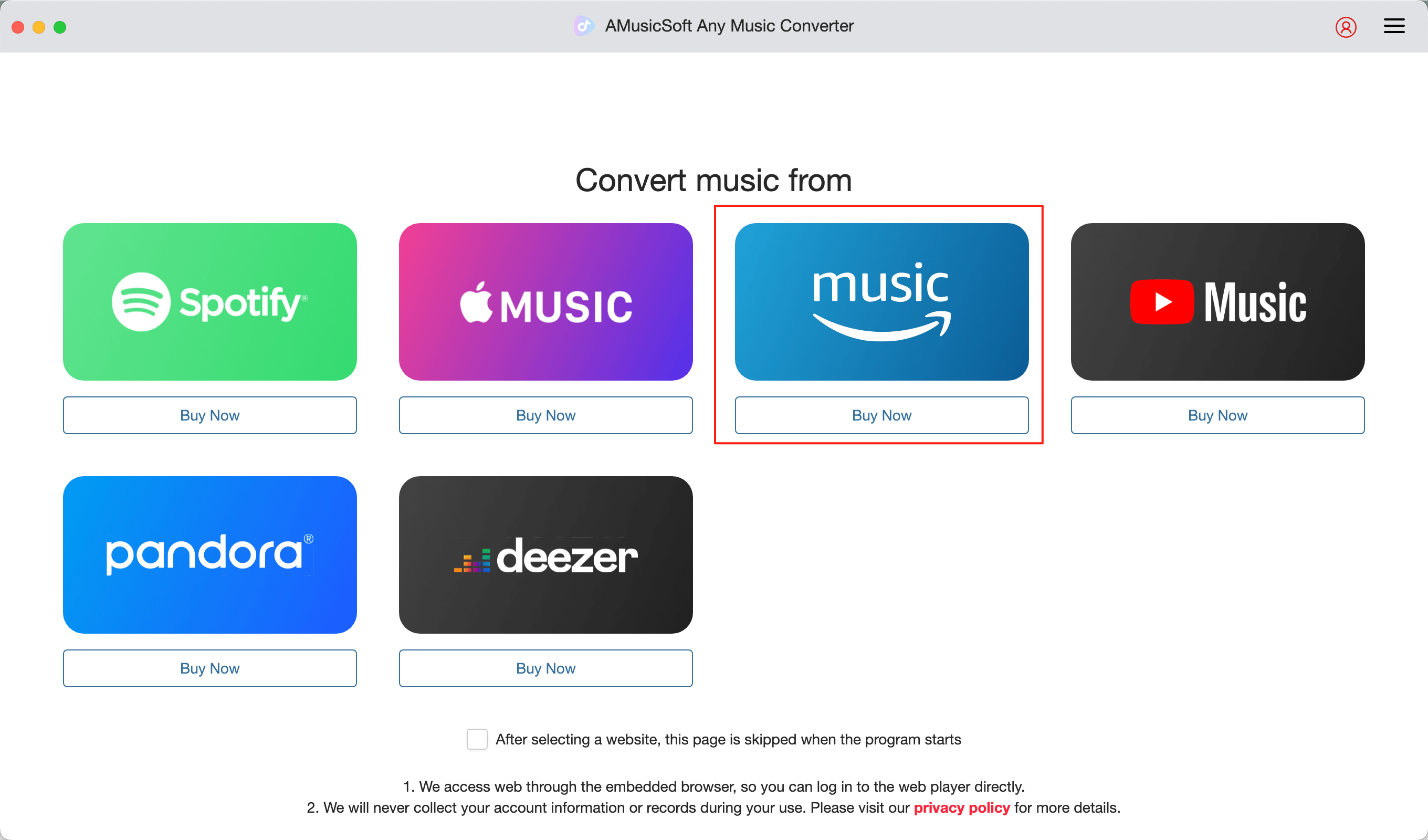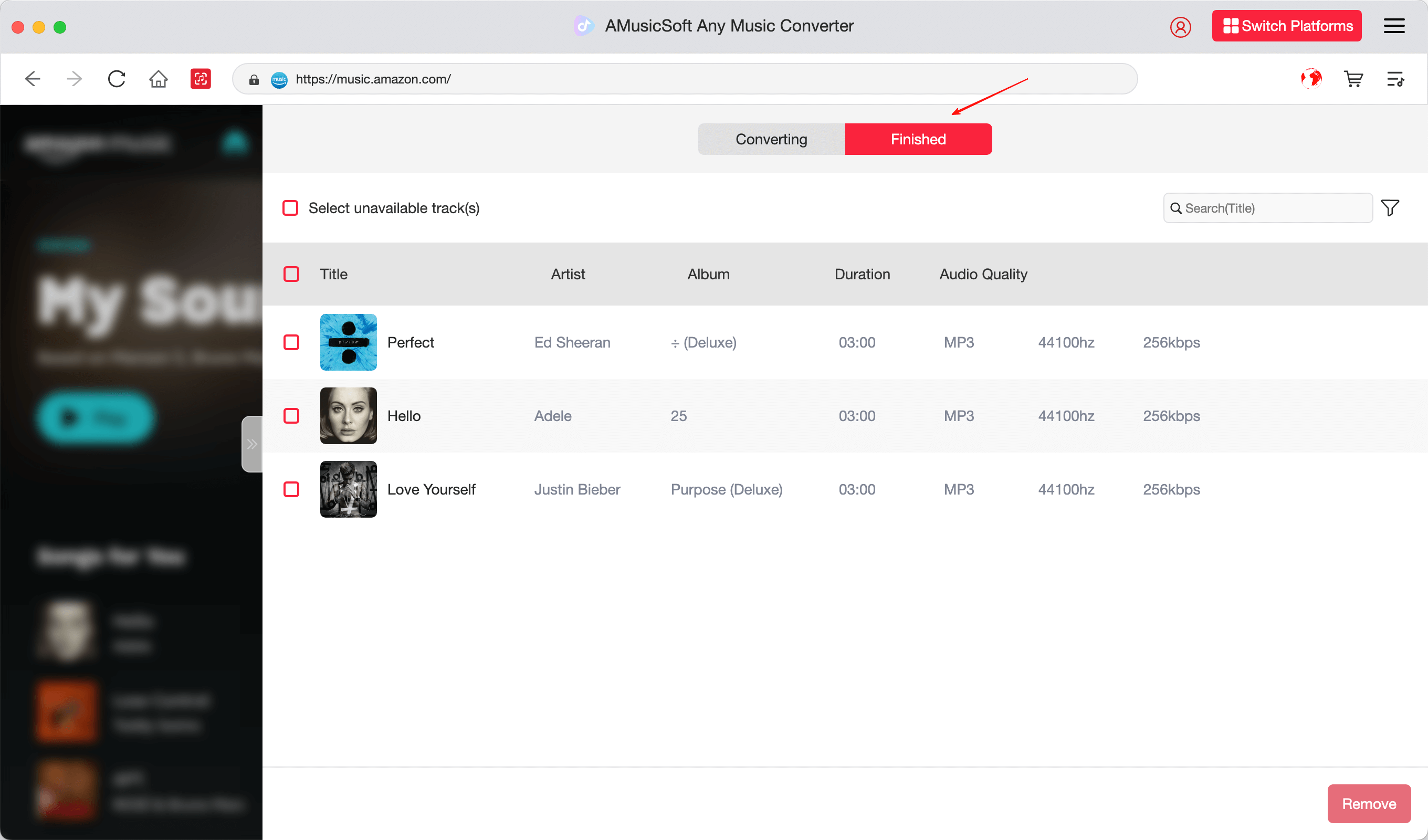How to Use Amazon Music as Ringtones on Android & iPhone (2026 Guide)
Have you ever stumbled upon a catchy song on Amazon Music and thought it would make the perfect ringtone? While Amazon Music offers a vast catalog of music, setting one of its tracks as a ringtone isn’t as straightforward as it might seem—especially due to DRM protection.
Luckily, in this guide, you’ll learn everything you need to know about how to use Amazon Music as ringtones on both Android and iPhone in 2026. We’ll explain why it doesn’t work directly, how to convert Amazon songs to DRM-free formats, and how to set them as ringtones step-by-step.
Article Content Why You Can't Use Amazon Music Directly The Tool You Need How to Convert Amazon Music to MP3 Set Amazon Music as Ringtone on Android Set Amazon Music as Ringtone on iPhone Conclusion
Why You Can't Use Amazon Music Directly as a Ringtone
Amazon Music tracks are protected by DRM (Digital Rights Management), which restricts how you can use the music you stream or download. This protection means you can't directly transfer songs from Amazon Music to ringtone folders or use them in editing apps.
Therefore, before you can use any Amazon song as a ringtone, you need to remove DRM and convert the file into a compatible format such as MP3 or M4R.
The Tool You Need to Convert Amazon Music
To bypass DRM and convert Amazon Music songs into formats usable as ringtones, we recommend AMusicSoft Amazon Music Converter.
This powerful tool can convert Amazon Music tracks to MP3, M4A, WAV, and more—all in high quality and without DRM. It works with both Prime Music and Amazon Music Unlimited.
How to Convert Amazon Music to MP3 with AMusicSoft
Follow these steps to convert Amazon Music to MP3 using AMusicSoft:
Step 1. Launch AMusicSoft Amazon Music Converter and log in to your Amazon account.

Step 2. Browse or search for the playlist or songs you want to use as a ringtone.

Step 3. Select output format as MP3 and click on “Convert”.

Step 4. Once finished, click the "Finished" tab to locate your converted files.

How to Set Amazon Music as Ringtone on Android
Once you have your Amazon song converted to MP3, here’s how to set it as a ringtone on Android:
- Open the Settings app on your Android phone.
- Go to Sound & vibration > Ringtone.
- Select "Add ringtone" or browse to your Downloads folder.
- Tap the converted MP3 file to set it as your ringtone.
How to Set Amazon Music as Ringtone on iPhone
For iPhone users, you need to import the MP3 file into iTunes or Apple Music and convert it to M4R format. Then follow these steps:
- Use iTunes to trim the MP3 to under 30 seconds and export it as an AAC file.
- Change the file extension from .m4a to .m4r.
- Drag the file into the Tones section of iTunes and sync it with your iPhone.
- On your iPhone, go to Settings > Sounds & Haptics > Ringtone and select your new tone.
To make the process smoother, you can also check our tutorial on how to transfer Amazon Music to iTunes.
Conclusion
Using Amazon Music as a ringtone is absolutely possible in 2025—as long as you first remove the DRM restrictions. With tools like AMusicSoft Amazon Music Converter, converting your favorite tracks and setting them as ringtones is both simple and legal.
If you want to explore more about Amazon Music usage, check out guides like how to enjoy Amazon Prime Music offline or how to convert Amazon M4A to MP3.
FAQs About Amazon Music and Ringtones
Can I use Amazon Music as a ringtone on iPhone?
Yes, but you’ll need to convert the track to M4R format first.
Is it legal to use Amazon Music songs as ringtones?
Yes, as long as it’s for personal use and you’ve purchased or downloaded the music legally.
Can I use Amazon Prime Music as ringtones?
You can, but you’ll need to convert it using a third-party tool like AMusicSoft first.
People Also Read
- How to Download Amazon Music in 2026 [Ultimate Guide]
- How to Transfer Amazon Music to iTunes in 2026 [Full Guide]
- How to Use Amazon Prime Music in 2026 [Complete Guide]
- How to Enjoy Amazon Prime Music Offline in 2026
- Amazon Music vs Spotify in 2026: Which Streaming Service Is Better?
- Best Amazon Music Downloader Review in 2026 [Tested & Compared]
- How to Rip Music from Amazon Music [Full Guide]
- How to Burn Amazon Music to CD in 2026 [Ultimate Guide]
Robert Fabry is an ardent blogger, and an enthusiast who is keen about technology, and maybe he can contaminate you by sharing some tips. He also has a passion for music and has written for AMusicSoft on these subjects.